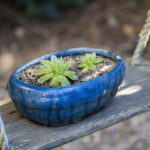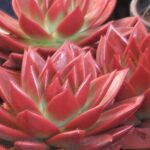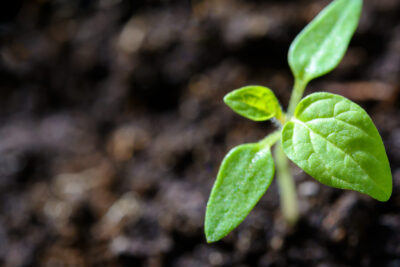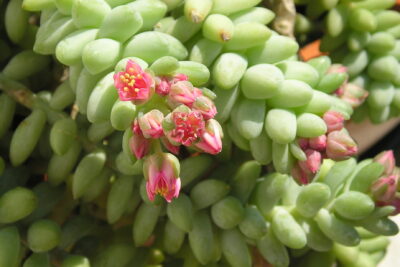
Top Succulent Plants: Perfect Elephant Food for a Nutritious Feast

The world of succulent plants is a fascinating one, with a wide variety of unique and beautiful species to explore. Succulents are known for their thick, fleshy leaves and stems that store water, making them well-adapted to arid environments. They have gained popularity as houseplants and in landscaping due to their low maintenance requirements and striking appearance. One interesting aspect of succulent plants is their role as a food source for certain animals, particularly elephants.
We will delve into the relationship between elephants and succulent plants, focusing on the specific types of succulents that elephants consume. Elephants are herbivorous animals with a diverse diet, and succulents play a significant role in their nutritional needs. We will discuss the nutritional value of succulent plants for elephants, as well as their role in the elephants' ecosystem. Additionally, we will explore some of the challenges faced by elephants in accessing these plants, and the conservation efforts aimed at protecting both elephants and their succulent food sources.
- Provide a variety of succulent plants for elephants to eat
- Ensure that these plants are safe and non-toxic for elephants
- Monitor the amount of succulent plants consumed by elephants to maintain a balanced diet
- Offer succulent plants that are high in nutrients and vitamins to promote good health
- Rotate the types of succulent plants available to elephants to prevent boredom and ensure a varied diet
- Consult with a veterinarian or animal nutritionist to determine the best succulent plants for elephant nutrition
- Consider the natural habitat of elephants when selecting succulent plants to mimic their diet in the wild
- Regularly assess the condition and availability of succulent plants to ensure a continuous supply for elephants
- Train elephants to forage and eat succulent plants, promoting natural behaviors and mental stimulation
- Frequently Asked Questions
Provide a variety of succulent plants for elephants to eat
Succulent plants are a vital part of an elephant's diet, providing them with essential nutrients and hydration. These plants are characterized by their thick, fleshy leaves and stems, which store water for long periods, making them a perfect source of hydration for elephants in hot and arid environments.
When it comes to providing a nutritious feast for elephants, it's important to offer a variety of succulent plants. This ensures that they receive a balanced diet and can choose their preferred options.
Benefits of feeding elephants succulent plants
- Hydration: Succulent plants are water-rich, helping elephants stay hydrated during dry spells or when water sources are scarce.
- Nutritional value: These plants are packed with essential vitamins, minerals, and fiber, promoting overall health and well-being for elephants.
- Palatability: Elephants are known to have preferences when it comes to taste. Offering a variety of succulent plants allows them to select their favorite flavors.
- Dental health: Chewing on succulent plants helps elephants maintain their teeth and prevent dental issues, as the fibrous texture acts as a natural toothbrush.
- Enrichment: Offering a diverse range of succulent plants provides mental stimulation and enrichment for elephants, as they can explore different textures, scents, and tastes.
Top succulent plants for elephants
Here are some of the most favored succulent plants that elephants enjoy:
- Aloe Vera: This spiky succulent is not only popular among humans but also elephants. It provides hydration and is rich in vitamins and minerals.
- Prickly Pear Cactus: Known for its juicy pads, this cactus is a tasty treat for elephants and aids in digestion.
- Agave: With its succulent leaves, agave offers both hydration and nutrition to elephants.
- Jade Plant: This hardy succulent is a favorite among elephants due to its crunchy leaves and mild flavor.
- Snake Plant: Also known as Mother-in-law's Tongue, this succulent is enjoyed by elephants for its unique taste and texture.
Remember to consult with experts or local botanical gardens to ensure the succulent plants you choose are safe and appropriate for elephant consumption. By providing a variety of these plants, you can ensure your elephants have a nutritious and enjoyable feast!
 Discover Low-Maintenance Bush-Like Plants That Resemble Succulents
Discover Low-Maintenance Bush-Like Plants That Resemble SucculentsEnsure that these plants are safe and non-toxic for elephants
When it comes to feeding elephants, it's crucial to choose plants that are not only delicious but also safe and non-toxic for these magnificent creatures. Here is a list of top succulent plants that make for a nutritious feast for elephants:
1. Aloe Vera
Aloe Vera is not just a popular ingredient in skincare products; it is also a favorite among elephants. Rich in vitamins, minerals, and antioxidants, Aloe Vera provides essential nourishment to elephants and supports their overall health. However, it's important to note that only the gel inside the leaves should be fed to elephants, as the outer rind can cause digestive issues.
2. Prickly Pear Cactus
Prickly Pear Cactus, also known as Opuntia, is a succulent plant with thick, fleshy pads that elephants find irresistible. This plant is packed with water, fiber, and essential nutrients, making it an excellent choice for an elephant's diet. Just be cautious while handling the plant due to its spiky thorns.
3. Jade Plant
The Jade Plant, scientifically known as Crassula ovata, is not only a popular houseplant but also a great source of nutrition for elephants. Its thick, oval-shaped leaves store water, making it a perfect choice for arid climates. Elephants enjoy munching on the juicy leaves, which provide them with hydration and vital nutrients.
4. Agave
Agave plants, also known as Century Plants, are a favorite among elephants due to their sweet and succulent leaves. These plants are rich in carbohydrates and provide elephants with a quick energy boost. However, it's crucial to ensure that the plants are mature enough before feeding them to elephants, as young agave plants can be toxic.
Remember, while these succulent plants are generally safe for elephants, it's essential to consult with experts or veterinarians who specialize in elephant nutrition to ensure a well-balanced and suitable diet for these incredible creatures.
 Top Yellow Flowering Succulent Ground Cover Options for Your Garden
Top Yellow Flowering Succulent Ground Cover Options for Your GardenMonitor the amount of succulent plants consumed by elephants to maintain a balanced diet
When it comes to the diet of elephants, succulent plants play a crucial role in providing them with essential nutrients. These plants are not only delicious but also highly nutritious, making them the perfect food choice for these gentle giants.
However, it is important to monitor the amount of succulent plants consumed by elephants to ensure they maintain a balanced diet. While these plants offer numerous benefits, overindulgence can lead to health issues.
The benefits of succulent plants for elephants
Succulent plants, such as aloe vera, cacti, and agave, are rich in water content, vitamins, and minerals. Elephants, being herbivores, rely heavily on vegetation for their nutritional needs. Succulent plants provide them with a hydrating and energizing food source, especially in arid regions where water is scarce.
These plants are also packed with antioxidants, which help boost the elephants' immune system and protect them against various diseases. Additionally, succulent plants contain high levels of fiber, aiding in digestion and preventing gastrointestinal issues.
The importance of monitoring succulent plant consumption
 Dramatic Succulents: Discover the Varieties with Striking, Long Leaves
Dramatic Succulents: Discover the Varieties with Striking, Long LeavesWhile succulent plants offer numerous benefits, it is crucial to monitor the amount consumed by elephants. Overeating these plants can lead to an imbalance in their diet and potentially cause health problems. Too much water content from succulent plants can result in diarrhea, dehydration, and electrolyte imbalances.
Furthermore, some succulent plants may contain toxic compounds that could be harmful if consumed in large quantities. Monitoring the types and quantities of succulent plants consumed ensures that elephants receive the right balance of nutrients while minimizing potential risks.
Tips for maintaining a balanced diet
- Diet diversity: Along with succulent plants, elephants should have a varied diet consisting of other grasses, fruits, and vegetables. This ensures they receive a wide range of nutrients.
- Consulting experts: Seek advice from wildlife experts and veterinarians who specialize in elephant nutrition to develop a balanced diet plan.
- Observation: Regularly monitor the elephants' feeding habits, body condition, and overall health to identify any signs of nutritional imbalances.
- Adjustments: Based on observations and expert guidance, make necessary adjustments to the elephants' diet to ensure they are getting the right amount of succulent plants and other foods.
By monitoring the consumption of succulent plants and following these tips, you can help maintain a balanced diet for elephants and ensure their overall well-being.
Offer succulent plants that are high in nutrients and vitamins to promote good health
Succulent plants are not only visually appealing, but they can also provide a nutritious feast for elephants. These plants are known for their fleshy leaves and stems that store water, making them perfect for dry climates. In addition to being a great source of hydration, many succulent plants are high in nutrients and vitamins that can promote overall good health in elephants.
1. Aloe Vera
Aloe Vera is a popular succulent plant known for its medicinal properties. It contains a variety of vitamins, including vitamin A, C, and E, as well as minerals such as calcium, magnesium, and potassium. Feeding elephants Aloe Vera can help boost their immune system, improve digestion, and promote healthy skin and coat.
 Best Heat-Resistant Succulents: Thriving in High Temperatures
Best Heat-Resistant Succulents: Thriving in High Temperatures2. Jade Plant
The Jade Plant, also known as Crassula ovata, is another succulent that elephants can enjoy. It is rich in vitamins A, B, and C, as well as essential minerals like iron and manganese. Feeding elephants Jade Plant can aid in strengthening their bones and promoting healthy growth.
3. Prickly Pear Cactus
The Prickly Pear Cactus, scientifically known as Opuntia, is a succulent plant with flat, paddle-shaped stems and vibrant flowers. It is packed with antioxidants, vitamins, and minerals, including vitamin C, calcium, and magnesium. Offering elephants Prickly Pear Cactus can help improve their immune system and support healthy digestion.
4. Echeveria
Echeveria is a popular succulent plant due to its rosette-shaped arrangement of leaves. It contains vitamins A, E, and K, as well as minerals like manganese and zinc. Feeding elephants Echeveria can contribute to their overall health and well-being.
5. Sedum
Sedum is a diverse genus of succulent plants that come in various shapes, sizes, and colors. They are rich in vitamins, including vitamin A, C, and E, as well as minerals like iron and calcium. Incorporating Sedum into an elephant's diet can provide them with essential nutrients for optimal health.
It is important to note that while succulent plants can be a nutritious addition to an elephant's diet, they should be offered in moderation and under the guidance of a veterinarian or animal nutritionist. Each elephant's dietary needs may vary, so it is crucial to ensure their overall nutritional requirements are met.
Rotate the types of succulent plants available to elephants to prevent boredom and ensure a varied diet
Why is it important to rotate the types of succulent plants for elephants?
When it comes to feeding elephants, variety is key. Just like humans, elephants thrive on a diverse diet that provides them with a range of nutrients. Succulent plants make an excellent addition to their menu, offering both hydration and nourishment. However, it is essential to rotate the types of succulent plants available to elephants to prevent boredom and ensure they receive a well-rounded diet.
 Explore Stunning Tri Color Succulents: Discover Vibrant Varieties!
Explore Stunning Tri Color Succulents: Discover Vibrant Varieties!The benefits of rotating succulent plants for elephants
By rotating the types of succulent plants, elephants can enjoy different flavors, textures, and nutritional profiles. This variety not only makes their meals more interesting but also helps meet their specific dietary needs. Here are some key benefits of rotating succulent plants for elephants:
- Improved nutrition: Different succulent plants contain varying amounts of essential vitamins, minerals, and fibers. By rotating the types of plants, elephants can access a wider range of nutrients, promoting overall health and well-being.
- Mental stimulation: Offering a variety of succulent plants keeps elephants mentally engaged. It prevents monotony in their diet and stimulates their foraging instincts, as they explore and interact with different types of plants.
- Preventing digestive issues: Some succulent plants may have laxative properties, while others could be more fibrous. By rotating these plants, elephants can avoid potential digestive issues that may arise from consuming the same plant consistently.
- Encouraging natural behavior: In the wild, elephants have access to a wide range of vegetation. By rotating succulent plants, we recreate a more natural environment for them, allowing them to exhibit their natural foraging behavior.
How to rotate the types of succulent plants for elephants
Rotating succulent plants for elephants requires careful planning and observation. Here are some tips to help you ensure a nutritious feast for these gentle giants:
- Research and identify safe plants: Before introducing new succulent plants, it's crucial to research and seek expert advice to ensure they are safe and non-toxic for elephants.
- Gradual transition: Start by introducing small amounts of the new plant alongside their usual diet. Gradually increase the proportion to allow their digestive system to adjust.
- Observe and monitor: Keep a close eye on the elephants' response to the new plants. Watch for any signs of discomfort or digestive issues and consult with professionals if needed.
- Rotate regularly: Aim to introduce a new succulent plant every few weeks or months, depending on availability and seasonality. This ensures a continuous rotation and prevents reliance on a single type of plant.
By following these practices, you can provide elephants with a nutritious and stimulating feast, allowing them to enjoy the benefits of a varied diet.
Consult with a veterinarian or animal nutritionist to determine the best succulent plants for elephant nutrition
When it comes to providing a nutritious feast for elephants, it's important to consult with a veterinarian or animal nutritionist. They can help determine the best succulent plants that will meet the dietary needs of these magnificent animals.
Elephants require a diverse diet that consists of various plants, including succulents. Succulent plants are an excellent choice as they are not only rich in nutrients but also provide hydration due to their water-retaining properties.
To ensure the well-being of elephants, it's crucial to choose succulent plants that are safe for consumption. Some succulents may be toxic to animals, so it's essential to seek professional advice to avoid any potential harm.
Benefits of Succulent Plants for Elephant Nutrition
Succulent plants offer numerous benefits when it comes to elephant nutrition. These plants are packed with essential vitamins, minerals, and fiber that contribute to the overall health and well-being of these gentle giants.
 Indoor Succulents: Soft-Leaved Varieties Available?
Indoor Succulents: Soft-Leaved Varieties Available?- Hydration: Succulent plants store water in their leaves, stems, or roots, making them an excellent source of hydration for elephants. This is particularly beneficial in dry or arid environments where access to water may be limited.
- Nutrient-rich: Succulents are known for their high nutrient content. They are rich in vitamins, such as vitamin A and C, as well as minerals like calcium and magnesium. These nutrients help support the immune system, promote healthy bone development, and contribute to overall growth and vitality.
- Digestive health: The fiber content in succulent plants aids in digestion and helps prevent digestive issues in elephants. It promotes regular bowel movements and ensures proper nutrient absorption.
- Enrichment: Offering a variety of succulent plants as part of an elephant's diet provides mental stimulation and enrichment. The different textures and flavors of these plants mimic the foraging behavior elephants would exhibit in the wild.
It's important to note that while succulent plants are a valuable addition to an elephant's diet, they should be incorporated alongside other plant materials and approved supplements to ensure a balanced and complete nutrition plan.
Examples of Safe Succulent Plants for Elephants
Here are some examples of succulent plants that are safe for elephant consumption:
- Aloe Vera: Aloe vera is a popular succulent with numerous health benefits. Its gel-like substance is soothing and can aid in digestion for elephants.
- Prickly Pear Cactus: This cactus variety is not only safe but also highly nutritious for elephants. It provides a good source of vitamin C and can help with hydration.
- Agave: Agave plants contain natural sugars that can provide energy for elephants. They are also a good source of fiber.
- Jade Plant: Jade plants are safe for elephants and are known for their high water content. They can help keep the elephants hydrated.
Remember, it's crucial to consult with a professional to determine the specific succulent plants that are suitable for the elephants in your care. Each elephant's nutritional needs may vary based on factors such as age, health, and environment.
By incorporating safe succulent plants into an elephant's diet, you can provide them with a nutritious feast that promotes their overall well-being and supports their natural behaviors.
Consider the natural habitat of elephants when selecting succulent plants to mimic their diet in the wild
When it comes to selecting succulent plants for elephants, it's important to consider their natural habitat. Elephants are known to thrive in various regions, including grasslands, savannas, and forests. These environments provide them with a diverse array of plants to graze on, ensuring a nutritious feast.
By mimicking their diet in the wild, we can provide elephants with the necessary nutrients they need to stay healthy and happy. Succulent plants are an excellent choice as they offer a high water content that elephants require to stay hydrated.
 Exploring the Unique World of Blue Succulent Plants: Are They Real?
Exploring the Unique World of Blue Succulent Plants: Are They Real?The Benefits of Succulent Plants for Elephants
Succulent plants are known for their ability to store water in their leaves, stems, and roots. This characteristic makes them a perfect choice for elephants as they can provide a refreshing source of hydration.
Additionally, succulents come in a wide variety of shapes, sizes, and textures, which adds enrichment to the elephants' diet. Different succulent species offer varying levels of nutrients, ensuring a balanced and diverse diet for these magnificent creatures.
Furthermore, succulent plants are typically low-maintenance and easy to grow, making them a practical choice for both zoos and individuals who want to provide elephants with a natural and nutritious diet.
Top Succulent Plants for Elephants
When selecting succulent plants for elephants, it's essential to choose non-toxic varieties. Some popular options include:
- Aloe Vera: This succulent offers numerous health benefits and can be a tasty treat for elephants.
- Prickly Pear Cactus: The pads of this cactus are a favorite of elephants and provide a good source of hydration.
- Jade Plant: With its thick, fleshy leaves, the jade plant is a great choice to mimic the wild diet of elephants.
These are just a few examples, but there are many other succulent plants that can be suitable for elephants. It's important to do thorough research and consult with experts to ensure the plants you choose are safe and appropriate for these beautiful creatures.
Providing elephants with a diet that mimics their natural habitat is crucial for their well-being. Succulent plants offer a range of benefits, including hydration and enrichment. By selecting the right succulent species, we can ensure that elephants receive a nutritious feast that keeps them happy and healthy.
Regularly assess the condition and availability of succulent plants to ensure a continuous supply for elephants
 Uncover Profitable Succulent Varieties for Lucrative Returns
Uncover Profitable Succulent Varieties for Lucrative ReturnsElephants are known for their voracious appetites and their ability to consume massive amounts of food in a single day. One of the key components of their diet is succulent plants, which provide them with essential nutrients and hydration. As caretakers of these magnificent creatures, it is crucial to regularly assess the condition and availability of succulent plants to ensure a continuous supply for their nutritious feast.
The Importance of Succulent Plants in an Elephant's Diet
Succulent plants, also known as water-storing plants, play a vital role in an elephant's diet. These plants are rich in moisture, making them an excellent source of hydration for these massive creatures, especially in arid and dry environments. Additionally, succulent plants are packed with essential nutrients such as vitamins, minerals, and fiber, which are necessary for maintaining their overall health and well-being.
Ensuring a Continuous Supply of Succulent Plants
To ensure a continuous supply of succulent plants for elephants, it is essential to follow a few key steps:
- Regular Monitoring: Keep a close eye on the condition of existing succulent plants in the elephant's habitat. Monitor the growth, health, and availability of these plants to determine if any changes or interventions are needed.
- Propagation: Cultivate a variety of succulent plants suitable for elephant consumption through propagation techniques. This can include growing them from seeds, cuttings, or dividing existing plants.
- Planting and Maintenance: Ensure proper planting of succulent plants in the elephant's habitat. Follow appropriate maintenance practices, such as watering, fertilizing, and protecting them from pests or diseases.
- Rotational Feeding: Implement a rotational feeding system to prevent overgrazing and allow succulent plants to replenish naturally. This involves dividing the habitat into different sections and allowing elephants access to one section at a time while the others recover.
Benefits of a Continuous Succulent Plant Supply
A continuous supply of succulent plants for elephants offers numerous benefits, including:
- Nutritional Balance: By ensuring a steady availability of succulent plants, elephants can maintain a balanced diet, receiving the necessary nutrients for optimal health.
- Hydration: Succulent plants provide a significant source of hydration, aiding elephants in meeting their water requirements, even in dry conditions.
- Physical and Mental Stimulation: The presence of succulent plants in the elephant's habitat stimulates their natural foraging behavior, providing both physical and mental enrichment.
- Conservation: By actively managing and ensuring a continuous supply of succulent plants, we contribute to the conservation of these species and their habitats.
Overall, maintaining a continuous supply of succulent plants for elephants is crucial for their well-being and vitality. By closely monitoring, propagating, and implementing proper feeding and maintenance practices, we can provide these magnificent creatures with a nutritious feast while promoting their overall health and conservation.
Train elephants to forage and eat succulent plants, promoting natural behaviors and mental stimulation
Elephants are magnificent creatures known for their intelligence and social nature. In captivity, it is crucial to provide them with opportunities for mental stimulation and promote natural behaviors. One way to achieve this is by training elephants to forage and eat succulent plants.
 Top Succulents for Thriving in Texas Climate: A Comprehensive Guide
Top Succulents for Thriving in Texas Climate: A Comprehensive GuideSucculent plants, with their fleshy and water-retaining leaves, are a perfect addition to an elephant's diet. Not only are they nutritious, but they also mimic the vegetation elephants would encounter in the wild. By incorporating these plants into their diet, we can help recreate a more natural environment for these majestic animals.
Benefits of incorporating succulent plants into an elephant's diet:
- Promotes natural foraging behavior: Elephants in the wild spend a significant amount of time foraging for food. By introducing succulent plants, we encourage elephants in captivity to engage in this natural behavior, keeping them mentally and physically active.
- Provides mental stimulation: Foraging for food requires problem-solving skills and cognitive effort. By training elephants to find and consume succulent plants, we provide them with mental stimulation, preventing boredom and promoting overall well-being.
- Enhances nutritional intake: Succulent plants are rich in essential nutrients, including vitamins, minerals, and fiber. Incorporating these plants into an elephant's diet ensures a diverse and well-balanced nutritional intake, contributing to their overall health and vitality.
- Supports dental health: Chewing on succulent plants can help elephants maintain healthy teeth and gums. The fibrous nature of these plants helps in natural tooth wear and prevents dental issues often associated with captive elephants.
Training elephants to forage and eat succulent plants requires careful planning and expertise. It is essential to consult with animal behavior specialists and nutritionists to ensure a balanced diet and a safe training process. By incorporating this practice, we can offer elephants a more enriched and fulfilling life in captivity, closer to their natural habitat.
Frequently Asked Questions
1. What are succulent plants?
Succulent plants are a type of plant that have thick, fleshy leaves and stems that store water. They are well-adapted to dry environments.
2. Can elephants eat succulent plants?
Yes, elephants can eat succulent plants. In fact, succulents like aloe vera and certain cacti are often included in the diet of elephants in the wild.
3. Are succulent plants nutritious for elephants?
 Discover the Most Popular Succulents: Names and Care Tips
Discover the Most Popular Succulents: Names and Care TipsYes, succulent plants can provide elephants with important nutrients like water, fiber, and some essential minerals. They can be a valuable part of their diet.
4. Which succulent plants are best for elephants to eat?
Elephants can safely eat a variety of succulent plants, including aloe vera, prickly pear cactus, and certain types of agave. However, it is important to consult with experts to ensure the plants are safe and non-toxic.
If you want to read more articles similar to Top Succulent Plants: Perfect Elephant Food for a Nutritious Feast, you can visit the Varieties and Colors category.






You Must Read